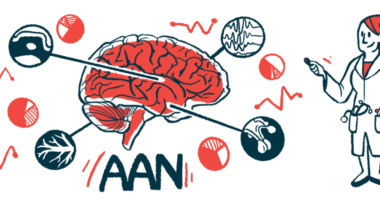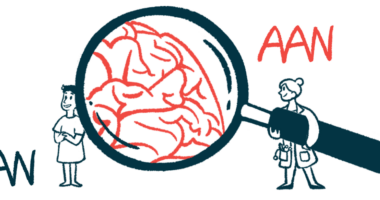Collaborators Awarded Bachmann-Strauss Prize for Excellence in Dystonia Research

Investigative collaborators from the University of Alabama at Birmingham (UAB) and the University of Rome Tor Vergata in Italy have been awarded the fifth annual Bachmann-Strauss Prize for Excellence in Dystonia Research.
The Michael J. Fox Foundation (MJFF) for Parkinson’s Research presented the awards recently to UAB’s David G. Standaert, MD, PhD, and John N. Whitaker professor and chairman of neurology, and to the University of Rome Tor Vergata’s Antonio Pisani, MD, PhD, associate professor of neurology.
The award is for significant contributions to dystonia research, and comes with an unrestricted grant of $100,000 to support further joint research. Also meant to motivate the next generation of investigators, the award is part of a partnership announced in 2014 between the MJFF and the Bachmann-Strauss Dystonia & Parkinson Foundation (BSDPF).
“Drs. Pisani and Standaert have made significant strides in plotting the cellular dysfunction that leads to dystonia,” said Bonnie Strauss, BSDPF founder, MJFF board member, and a dystonia patient, in a press release. “This team has laid the groundwork for development and testing of new therapies to help those living with dystonia.”
A generally poorly understood movement disorder characterized by painful, protracted muscle contractions that cause abnormal movements and postures, dystonia is both a distinct disorder and a common symptom of Parkinson’s disease. Dystonia symptoms usually begin in one body region — such as the neck, face, vocal cords, arm, or leg — then may spread to other areas.
Having co-authored their first published work in 2006, Standaert and Pisani have collaborated on nine research papers detailing dystonia’s pathology. The investigators, who are also practicing clinicians, have examined the role and relationship of neurotransmitter activity in dystonia, and have profiled a dopamine imbalance and acetylcholine activity in a condition type that usually begins in adolescence.
“We are honored to receive the prestigious Bachmann-Strauss Prize,” Pisani said. “It means we are working in the right direction for our findings to be recognized with such an award, and that we can continue building knowledge toward new treatments and cures.”
Added Standaert: “This work with Antonio is a very productive collaboration that has been an engine for discovery. There is a tremendous need for more research in the field, and more researchers. I hope this recognition from Bachmann-Strauss and MJFF will demonstrate to young investigators that there is a support and encouragement for research in dystonia and will attract more of them to this field.”
The researchers will use award funds to collaboratively study multiple models of a genetic form of dystonia to better understand the mutation’s effect.
The Bachmann-Strauss prize is intended to honor current research, an individual’s past body of work, or both.






